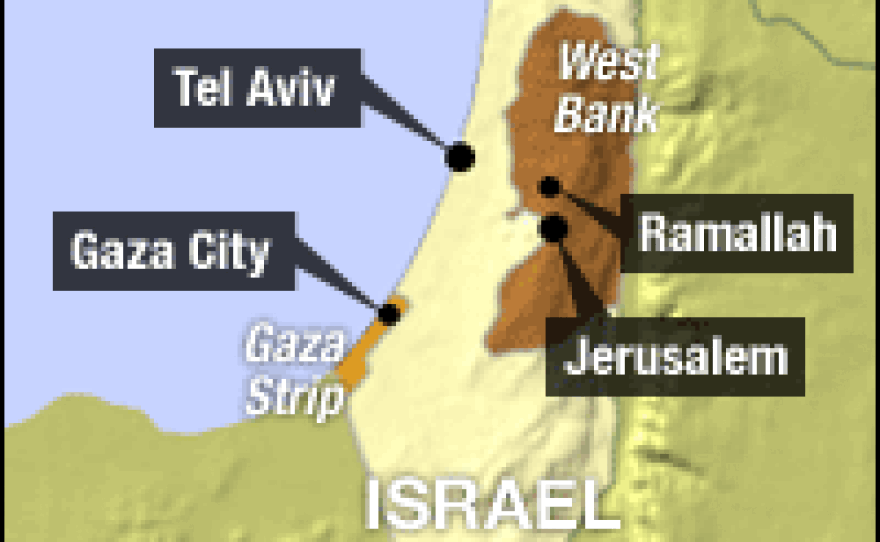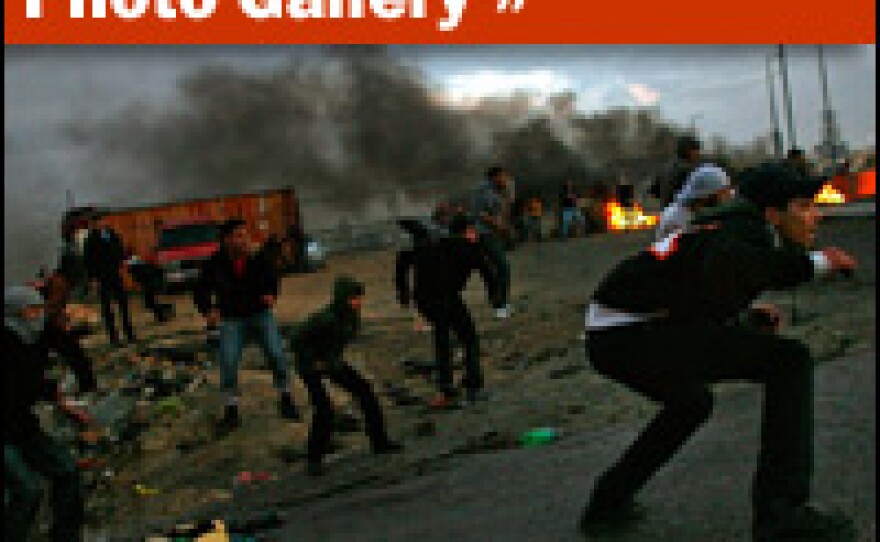
An ongoing air assault on Gaza is only the beginning of an operation to shut down Hamas and halt rocket attacks from the territory, Israeli Prime Minister Ehud Olmert says.
Olmert told Israeli President Shimon Peres on Tuesday that the aerial phase of the operation is "the first of several" phases of attack that have been approved, according to a spokesman for the prime minister.
Israeli air force jets launched a bruising offensive Saturday after Hamas, which controls Gaza, defied warnings that Israel would not stand for the rocket barrages that resumed nearly two months ago at the end of a recently expired cease-fire.
President Bush and Palestinian Authority President Mahmoud Abbas agreed in a telephone conversation Tuesday that if any new cease-fire agreement is to be effective in the Mideast, "it must be respected by Hamas," the White House said.
Briefing reporters at Bush's Texas ranch, spokesman Gordon Johndroe reiterated the U.S. call for the militant Hamas organization to stop firing rockets into Israel.
"We have got to get a commitment from Hamas that they would respect any cease-fire and make it lasting and durable," Johndroe said. "Until Israel can get that assurance from Hamas, we are not going to have a cease-fire worth the paper it's written on."
Palestinian doctors say the death toll from the days of air attacks in Gaza is more than 350, including at least 80 civilians. Monday night was one of the heaviest overnight bombardments so far, with several Hamas government buildings reduced to rubble.
Israeli warplanes destroyed a government complex, security installations and the home of a top militant commander as thousands of Israeli ground troops, backed by tanks and artillery, massed along the border.
Gaza resident Hossam al-Madhoun told NPR that most people are scared to move around and fearful of where the next airstrike might hit. He said many are running low on basic food and cooking items.
"Bakeries are closed. It's a catastrophe," he said. "I still have bread for one or two days. I don't know what to do afterwards, where to get bread from."
Israeli military officials said the airstrikes have reduced the ability of Hamas to launch rockets, but the attacks continued Tuesday. The previous day, three Israelis were killed in rocket and mortar fire from Gaza.
"Zionists, wait for more from the resistance," Hamas spokesman Ismail Radwan said in a text message to reporters, referring to the group's struggle against Israel.
Meanwhile, a small boat carrying international activists with aid for Gaza docked in the southern Lebanese port city of Tyre on Tuesday after a clash with an Israeli naval ship forced it to divert to Lebanon.
The 60-foot cabin cruiser, operated by the "Free Gaza" movement, was reportedly carrying medical aid and 16 people. It was rammed and shot at in international waters 70-80 miles off Gaza by an Israeli naval vessel. There were no casualties.
Israel's offensive against Gaza began eight days after a six-month truce between Israel and the militants expired amid a barrage of Palestinian rocket fire. The offensive comes on top of an Israeli blockade of Gaza that has largely kept all but essential goods from entering the coastal territory since Hamas violently seized control in June 2007.
Both sides have come under international pressure to end the conflict. The European Union's executive arm on Tuesday urged Israel and Hamas to protect civilians and let humanitarian aid into the Gaza Strip.
The European Commission issued its statement a few hours before an emergency meeting of the bloc's foreign ministers in Paris on the Middle East conflict that also called for "a halt to the rocket attacks targeting Israeli civilians."
From NPR staff and wire reports
Copyright 2022 NPR. To see more, visit https://www.npr.org. 9(MDAzMjM2NDYzMDEyMzc1Njk5NjAxNzY3OQ001))






